Best iPhone carriers for business: Verizon vs T-Mobile vs AT&T on performance, price, incentives - 9to5Mac
Want to explore wireless carrier options for your business? With market competition strong there are some compelling offers if you're ready to make a switch. We'll cover Verizon vs T-Mobile vs AT&T when it comes to business plans. This guide will also detail how to find real-world coverage maps, how to test a new carrier for free, instantly with eSIM, the T-Mobile dedicated business plan for iPhone that includes AppleCare+ and IT support. Let's dig into the best iPhone carriers for business.
Table of contents
If you want to check out a comparison with the major carrier's consumer plans, we've got that here:
Below we'll focus specifically on small business, enterprise, and government/public sector carrier plans.
Best iPhone carriers for business: Verizon vs T-Mobile vs AT&T
Pricing, incentives, promos
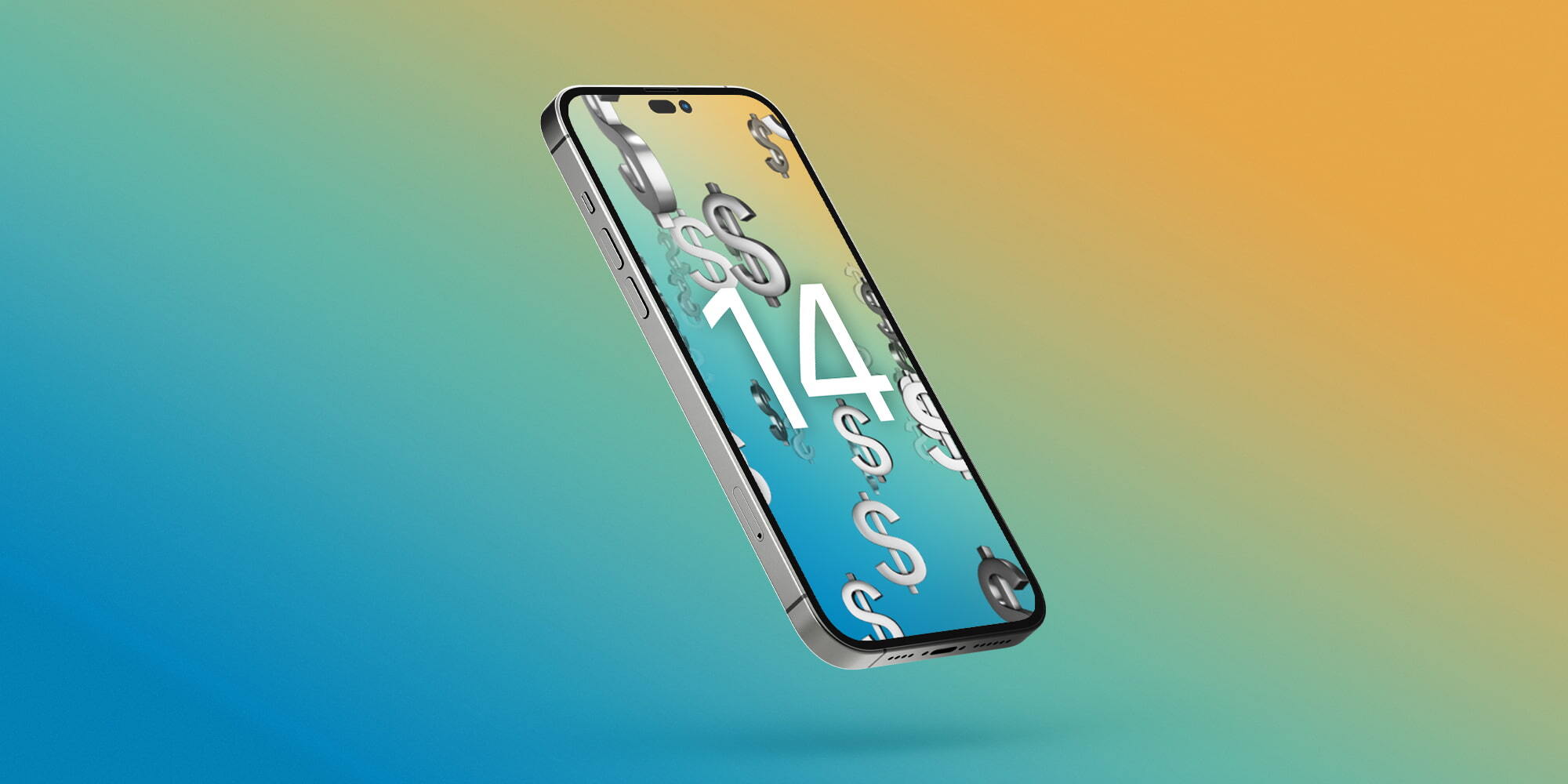
Strong competition has kept pricing close between the three major carriers for business plans. Keep in mind these prices can change based on how many lines you need but the best pricing is usually when you need 5/6 or more lines.
T-Mobile has the most affordable basic unlimited plan and also recently launched its new Business Unlimited Ultimate+ for iPhone plan that includes AppleCare+ and Apple Business Essentials IT support.
If you don't need that many lines for your business, some cheaper alternatives include T-Mobile Connect, Mint Mobile, and Consumer Cellular with pricing as low as $10-20 per line.
Incentives and deals
All of the major phone carriers (at the time of writing) offer incentives for either setting up new lines/buying new devices or bringing your own devices.
But T-Mobile is the most aggressive with up to $600 for BYOD credits as well as having a free iPhone 14 Pro offer.
Affordable alternatives to major carriers
If cutting the cost of your business phone bill is a top priority, check out our full guide on the best affordable iPhone plans. All of these carriers don't offer dedicated business plans, but if you don't need many lines, they may be worth checking out.
We go over which of the major networks each provider uses, key features, and more with plans starting from just $10 a line.
Speed
Like coverage, a carrier's speed will depend on a variety of factors including your location, device, signal strength, network congestion, and more.
And if you live in a major city vs a small town, speeds can be very different. Verizon leads with the fastest 1,000+ Mbps speeds if you have 5G UWB coverage, but T-Mobile has greater availability at the moment with its more moderately fast mid-band 5G.
Here's a look at how the three major carriers compare for average US speeds in studies from Ookla and Opensignal as of summer 2022:
TL;DR
- Verizon has the fastest top speeds if and where you have 5G UWB coverage
- T-Mobile has the fastest average 5G speeds with more mid-band coverage
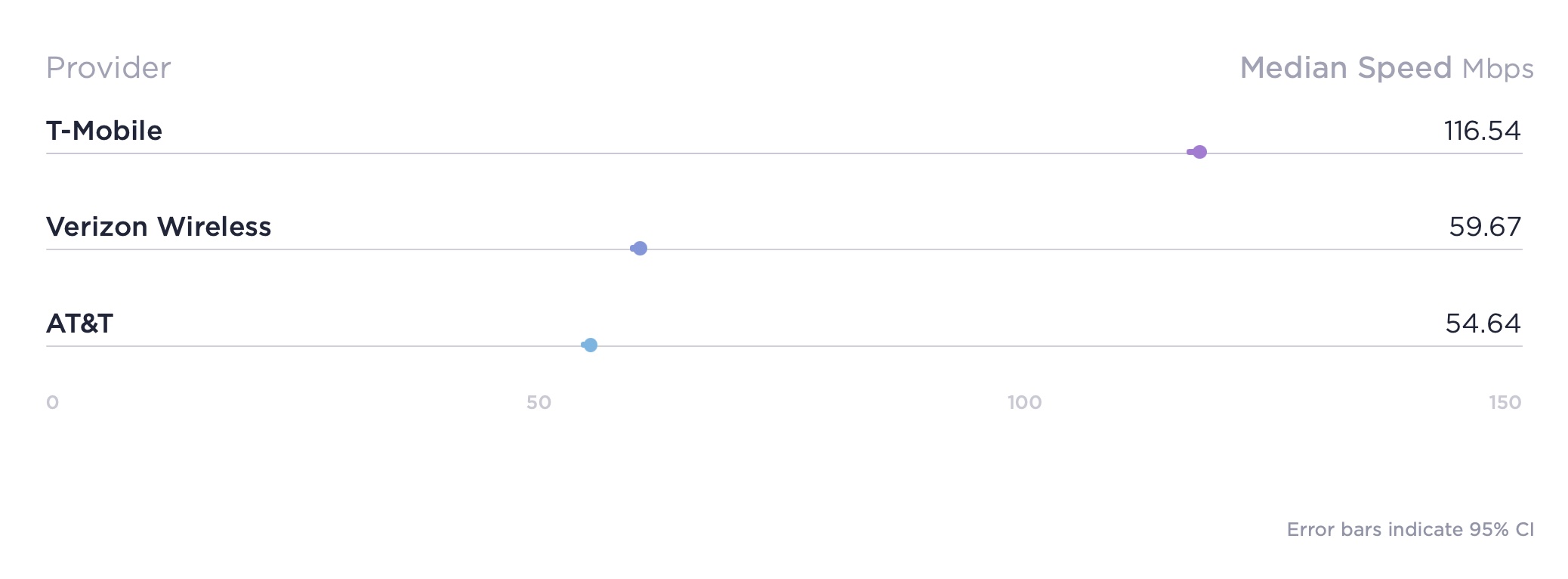
Opensignal's results show average 5G download speeds in the US as of Q2 2022.
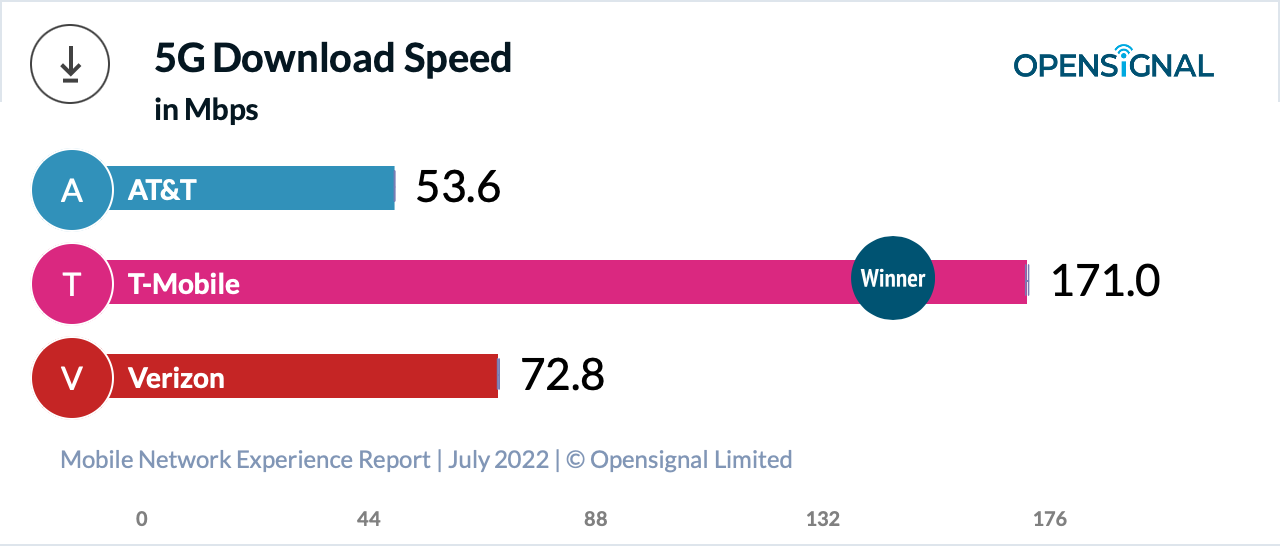
Coverage
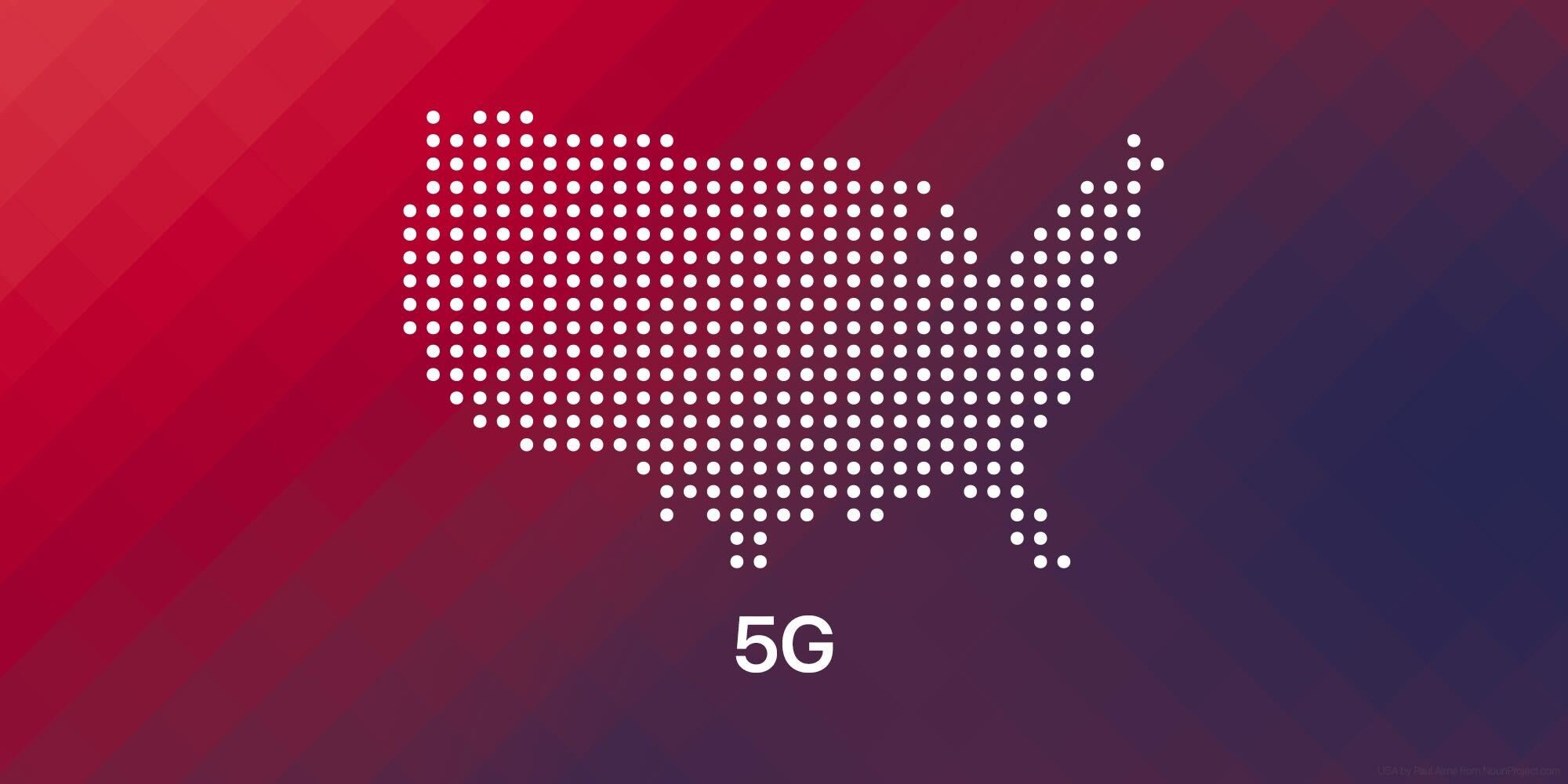
While Verizon has led the best phone carriers as far as having the most customers (and still is) along with the broadest coverage over the last decade, T-Mobile has gained a lot of ground with its Sprint acquisition and quick 5G deployment. That has meant Verizon and AT&T are both playing a bit of catch-up with T-Mobile on 5G coverage as they work on rolling out more mid-band spectrum.
However, Verizon did launch 5G UWB coverage in 1,700 US cities earlier this year.
TL;DR
All of the major carriers' coverage maps will probably look great on their websites, here are a few tips to actually figure out how coverage will really be:
- Check coverage with the independent, third-party Opensignal app
- Opensignal gets real-world data from millions of devices and billions of measurements
- Compare 4G/5G coverage with Signalchecker for your area
- Start a free eSIM trial to test out the coverage (available with T-Mobile and Visible/Verizon)
- Check with friends, family, or people at work who use the carrier you're considering
Free instant eSIM trials
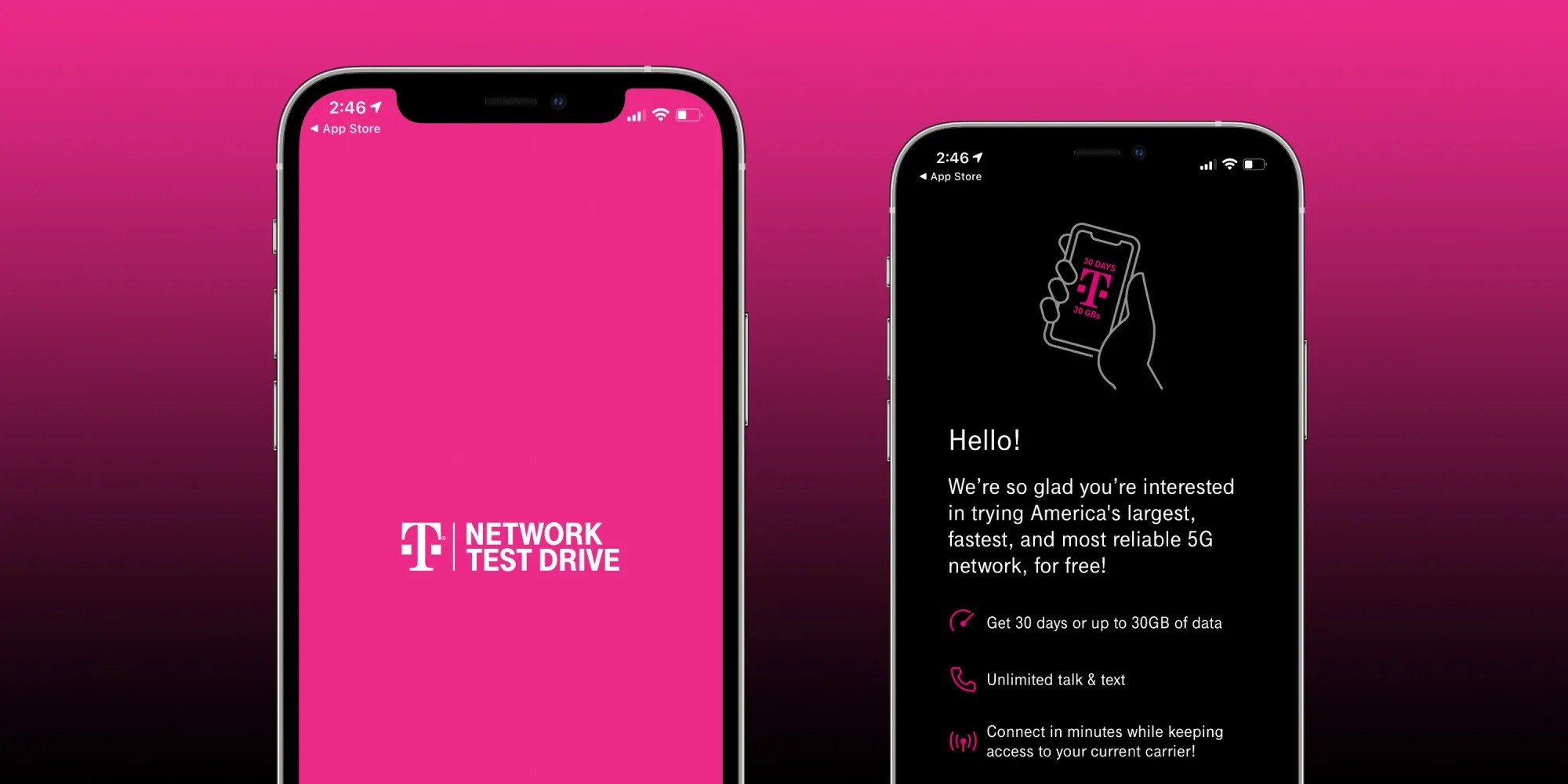
In past years it's been a hassle to try out a new carrier – especially for business owners – but eSIM support on iPhone and other smartphones has created a new option.
T-Mobile and Visible (uses Verizon's network) are using the tech which offers the ability to instantly test out their networks for free right alongside your existing carrier.
- You can do a free eSIM test through T-Mobile's app – look for the Network Pass option
- Start an eSIM trial through Visible to test Verizon's network
- Note that these tests are through the consumer channel, but you still get to test the networks and can then sign up for a business plan if you want to switch
One of the big advantages of eSIM trials is you can see the signal for both your current carrier and the one you're testing simultaneously. And you can even decide to keep using your existing carrier and number for phone calls while using the trial for cellular data.
AT&T doesn't offer eSIM trials at this point. But you could grab a prepaid SIM from an MNVO like Cricket or H20 to test out AT&T's network without having to switch phone numbers.
This is especially nice for businesses as you can have an employee (or a few) test service for free without the hassle of porting numbers or making a commitment.
Best iPhone carriers for business conclusion
It's difficult to pick a single winner when it comes to the best phone carriers. What's most important to you will decide likely between coverage in your location, price, incentives to switch, and how many lines your business has.
But there's no denying T-Mobile and Verizon have a number of advantages over AT&T when it comes to both performance and pricing/incentives.
Hopefully, now you've got a good picture of how the major carriers compare, know how to independently check network coverage, and start a hassle-free trial. Thanks for reading our guide on the best iPhone carriers for business!
Check out 9to5Mac on YouTube for more Apple news:
Comments
Post a Comment